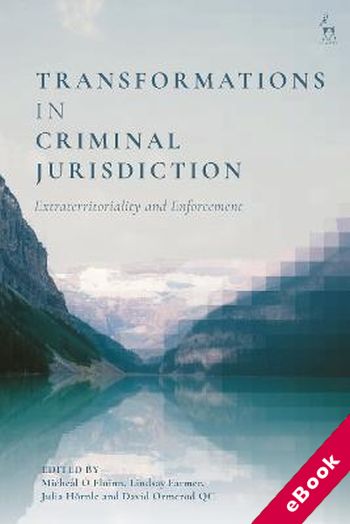
The device(s) you use to access the eBook content must be authorized with an Adobe ID before you download the product otherwise it will fail to register correctly.
For further information see https://www.wildy.com/ebook-formats
Once the order is confirmed an automated e-mail will be sent to you to allow you to download the eBook.
All eBooks are supplied firm sale and cannot be returned. If you believe there is a fault with your eBook then contact us on ebooks@wildy.com and we will help in resolving the issue. This does not affect your statutory rights.
Can traditional approaches to territorial jurisdiction adapt to the new global reality? Leading experts in criminal law and internet law unite to address this fundamental question. They consider whether this can be done through the development of parallel concepts such as extraterritorial or universal jurisdiction, or whether the situation requires completely new kinds of approaches to criminal jurisdiction and transnational crime.
The book illuminates the way in which questions of jurisdiction are becoming increasingly important to the investigation, prosecution, and punishment of crime, as with the growth of technology and the internet many crimes no longer take place within neat national boundaries. Increasingly, criminal lawyers grapple with complex answers to seemingly simple questions: - Where was the crime actually committed? - Which body has authority to investigate? - Which court has jurisdiction to hear the case and impose a sentence?
Part 1 looks at theoretical perspectives on criminal jurisdiction and how traditional jurisdictional concepts and understandings are being challenged, transformed, and reimagined in the era of the internet, cloud computing and social media. Part 2 homes in on the investigative powers of the state, to explore how these practical issues can inform the continuing transformation of current challenges.